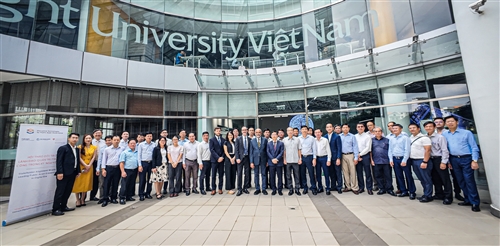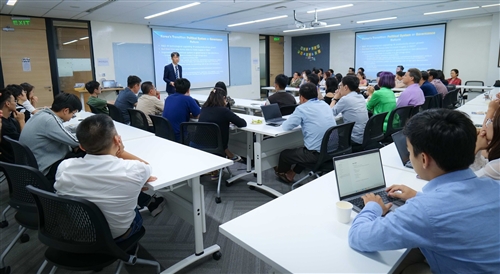Over 60 participants have attended the public lecture titled: "The 2nd Doi Moi Underway: The Political System Renovation and the Future of Vietnam's Economic Development" delivered by guest lecturer Prof. Kim Yong Kyun from Seoul National University at Fulbright School of Public Policy and Management on 5th March 2024.
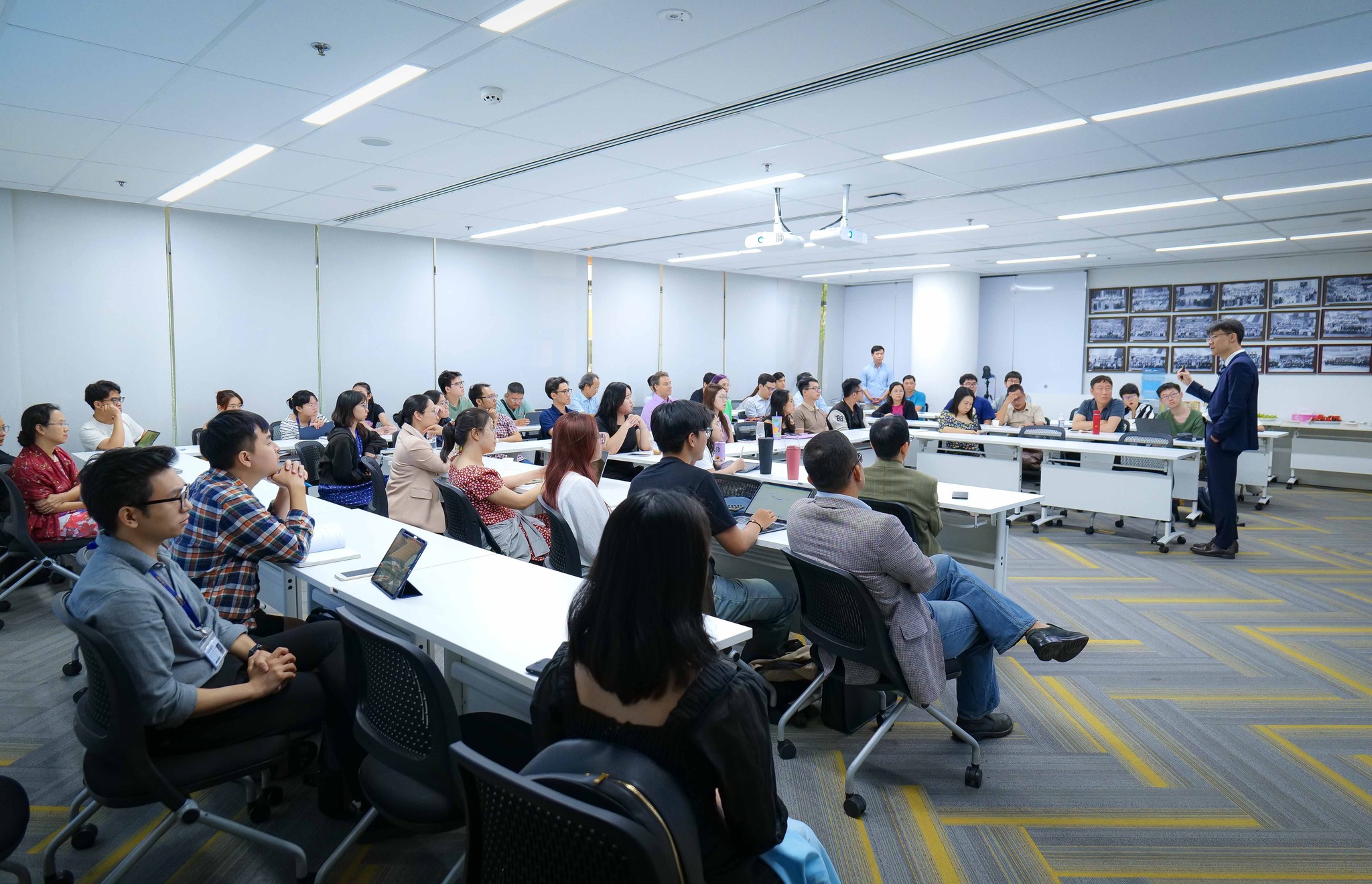
Firstly, Prof. Kim highlighted Vietnam's position at a crossroads, facing the risk of a middle-income trap. He discussed the so-called "building and correcting the Party," and its potential to be the 2nd Doi Moi in Vietnam if successful. The key, according to him, lies in balancing state empowerment with checks on arbitrary power through rule of law and accountability.
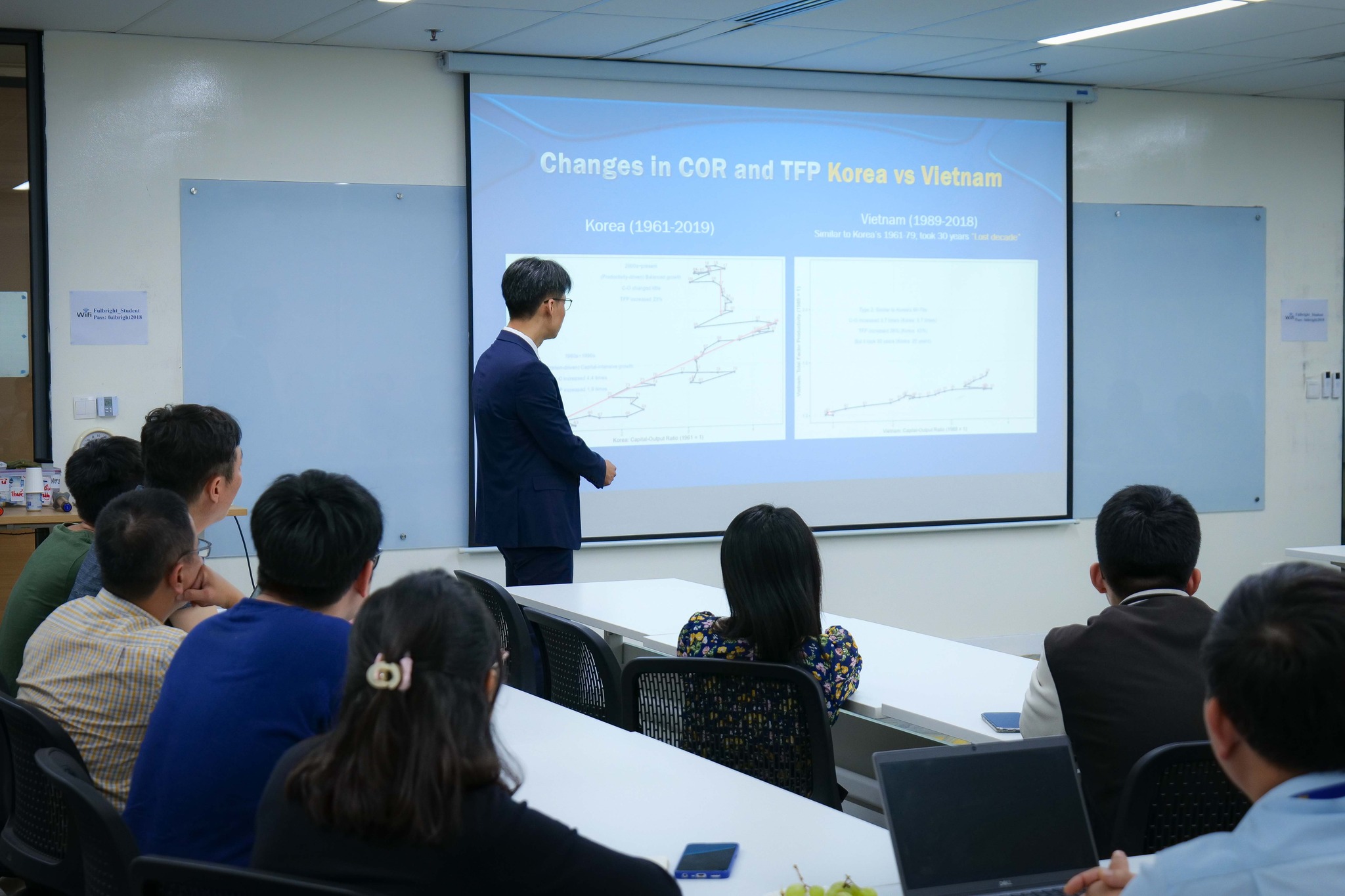
The presentation delved into Vietnam's economic development, comparing it with Korea, China, Malaysia, and Thailand Changes in per cap GDP Since $1,000 and analyzed the changes in Investment Capital Output Ratio (ICOR) and Total Factor Productivity (TFP) via four types of growth: (i) (Industrialization-driven) Capital-intensive growth; (ii) Slow Growth Trap; (iii) De-Industrialization; and (iv) (Productivity-driven) Balance Growth.
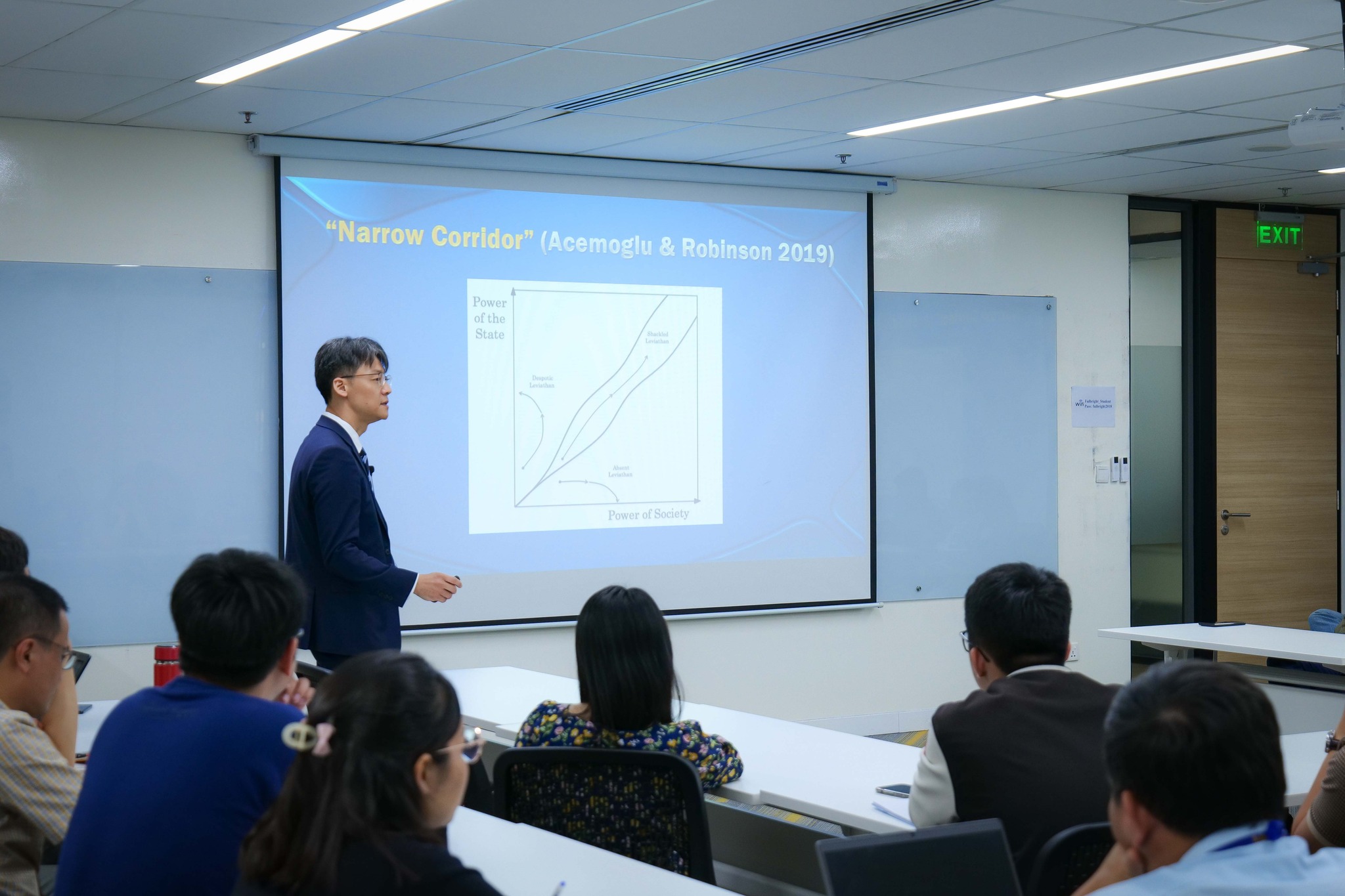
He drew parallels between Vietnam and Korea during their initial growth phases but labeled Vietnam's period from 1999 to 2012 as the "Lost decade" due to its average GDP growth around 6.7%. The reasons analyzed focused on the "Partial reform syndrome", decay of state capacity, Commercialization: abuse of power for personal interests, Fragmentation: authority dispersed to the government agencies, State has become the arena of competition for rentseeking, Corruption rampant, resources allocation distorted and Policy failures.
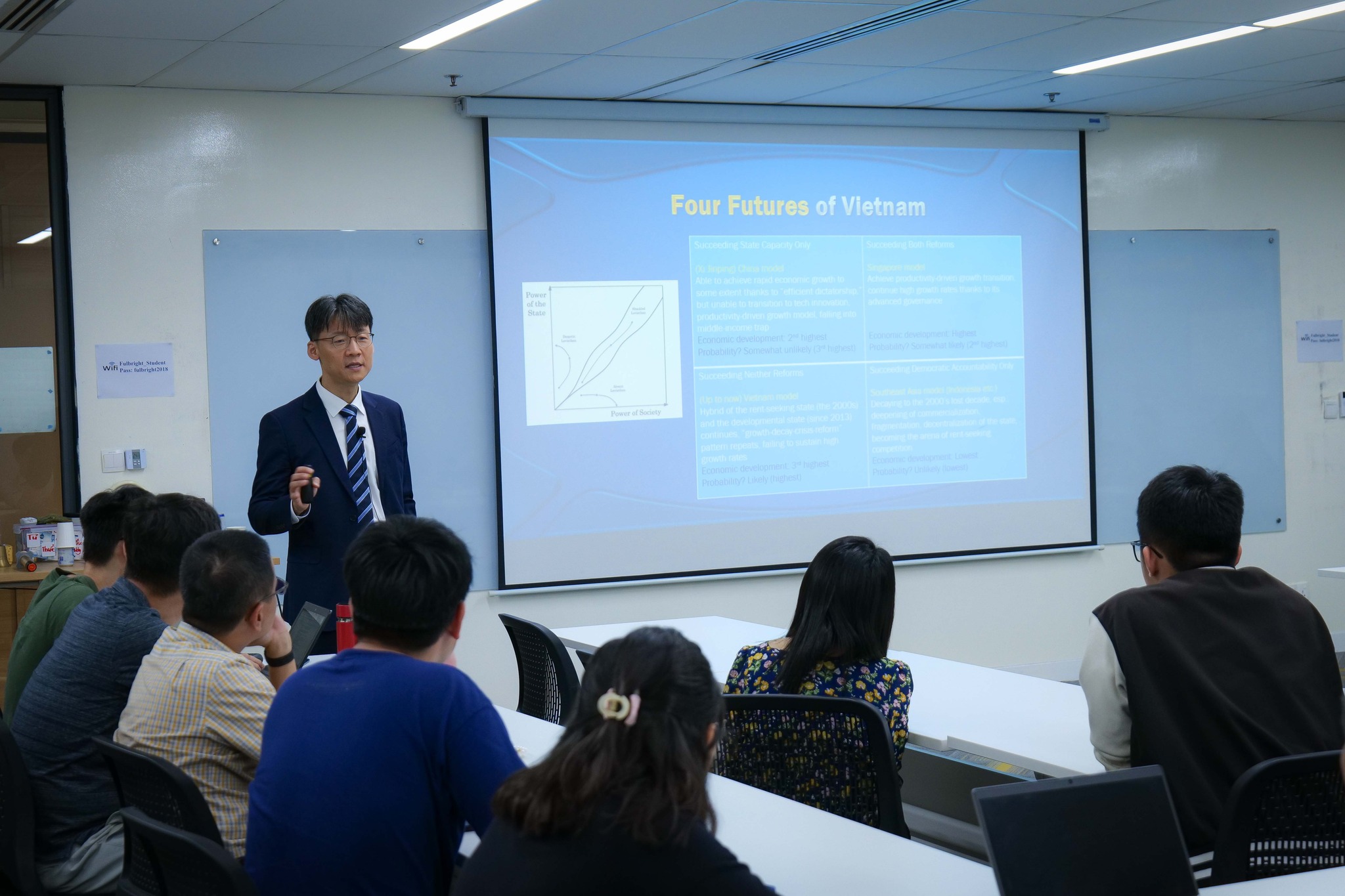
He showcased the creative impact of Korea's reform era on individuals like Bong Joon-ho (Director of "Parasite") and Hwang Dong-hyuk (Director of "Squid Game"), suggesting a correlation between societal reform and creativity.
Prof. Kim highlighted Korea's reform success, attributing it to R&D investment and improvements in governance, both empowering the state and restraining its power. He stressed the importance of a "Narrow Corridor," balancing societal and state power.
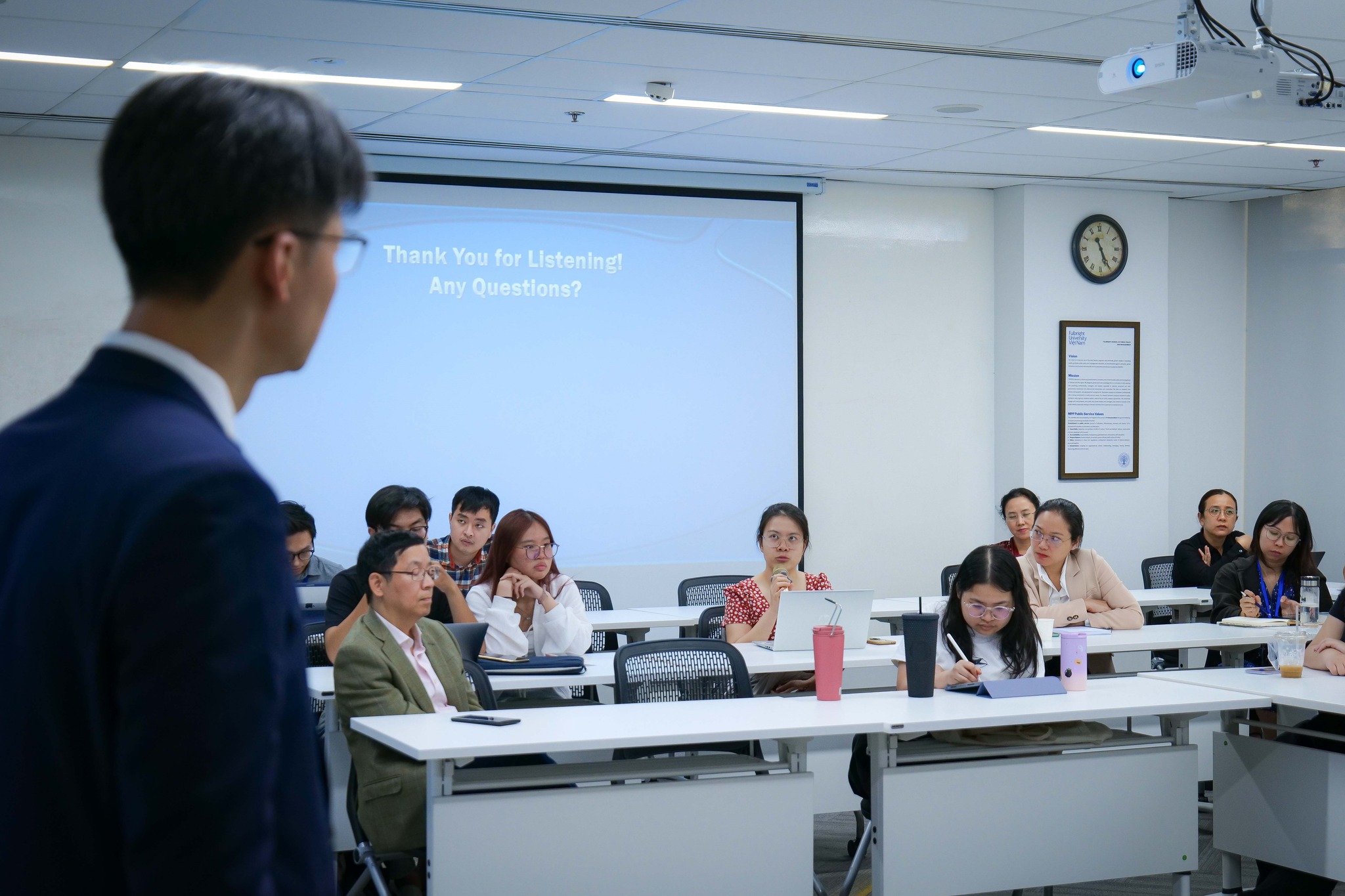
The talk touched on Vietnam's governance challenges, analyzing the Growth-Crisis-Reform pattern. Evidence from Provincial Governance Reform, measured by the Provincial Competitiveness Index (PCI) and the Provincial Governance and Public Administration Performance Index (PAPI), was presented.
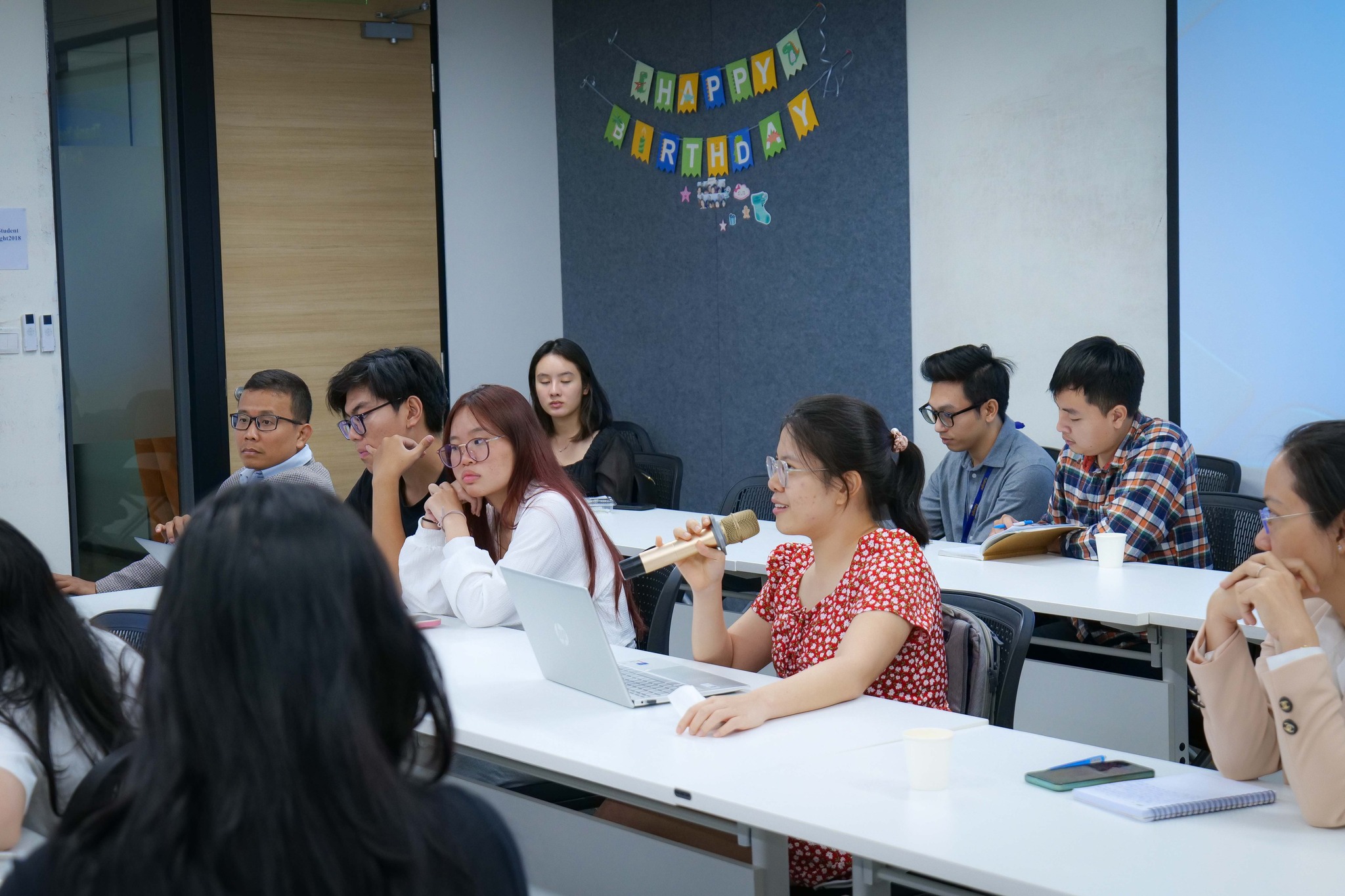
Finally, Prof. Kim envisioned four possible futures for Vietnam. The likelihood of success in political system renovation and governance reform would determine if Vietnam follows (i) a model similar to its past ("growth-decay-crisis-reform" pattern repeats, failing to sustain high growth rates), (ii) mirrors Singapore's success, (iii) adopts China's rapidly growing economy but struggles with innovation, or (iv) faces challenges akin to Southeast Asian nations like Indonesia, Philippines, etc..
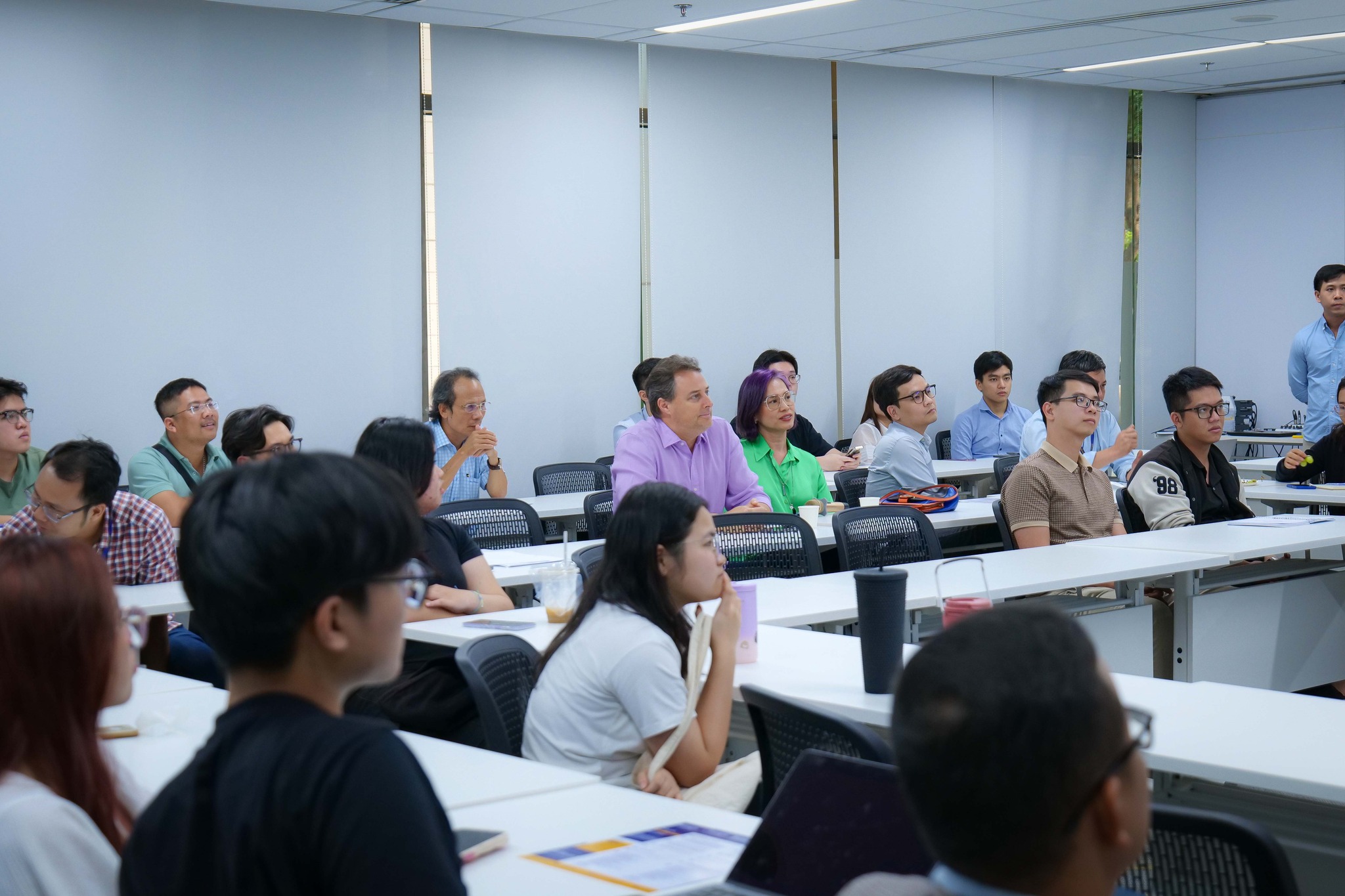
Currently, Prof. Kim Yong Kyun is working on a book with the same title as the lecture, where he expands on these insights, offering a deeper exploration of Vietnam's ongoing transformation and economic prospects.
- Uyen Vu
Related Articles

Admission Announcement Master in Public Policy MPP2026
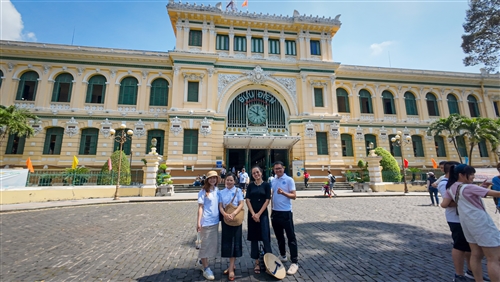
Cultural tour of Lao students of the MPP2025 course in Ho Chi Minh City
